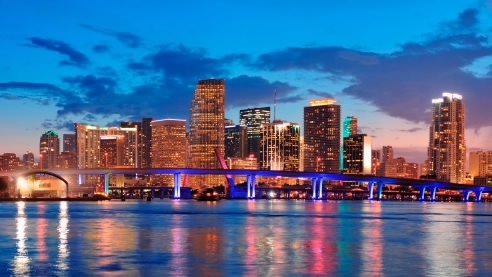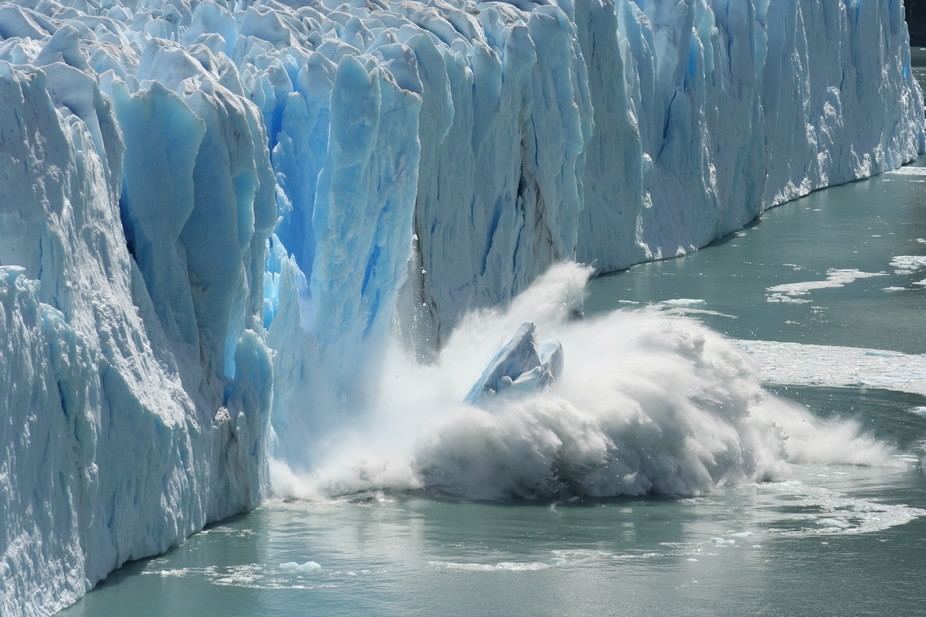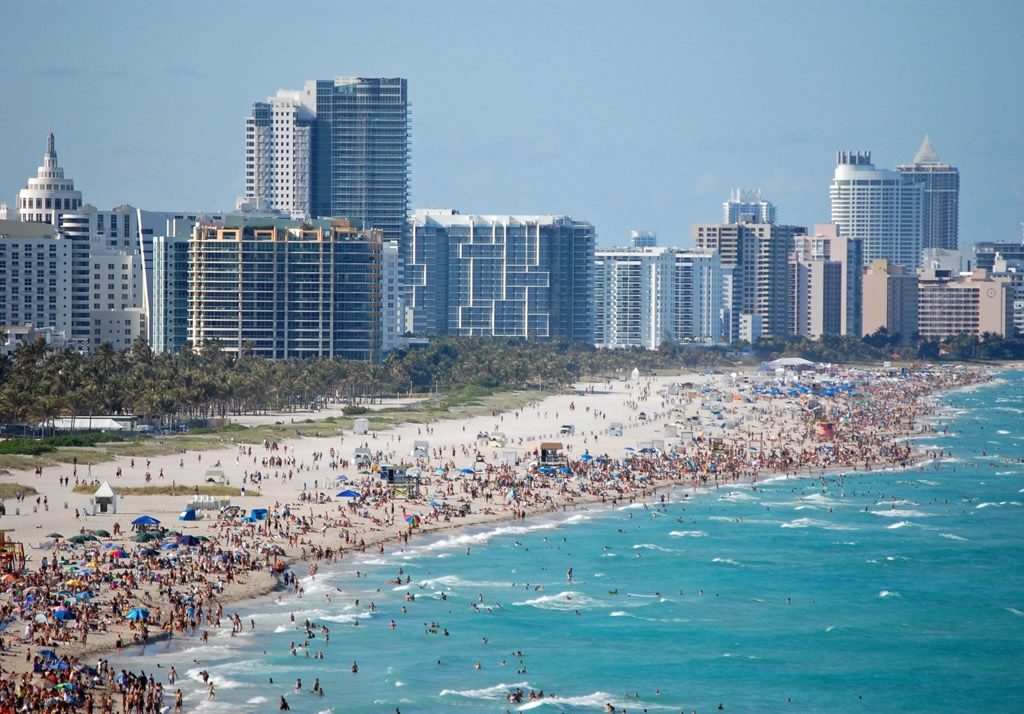
Culture
17:24, 16-Sep-2017
Rising sea-level a danger to Miami, warn scientists
CGTN

Scientists warned Miami may disappear under the rising sea level due to climate change.
Officials in Miami and surrounding areas are trying to prevent the area from one day going underwater. But the question is who will win in this man vs. nature battle.
Scientists said the sea level is rising and will likely continue to rise due to climate change, and that will impact low-lying coastal cities worldwide, from Bangkok to Mumbai, to right here in Miami.
Miami and surrounding areas have a major problem with flooding, and residents said it's getting worse. High tides – sometimes called king tides – even on clear, sunny days, can cause floodwaters to seep upward to street level through Miami's drainage system. That's because the city and surrounding areas rest on a bed of limestone, which is porous and allows water to seep upward to street level.
The city of Miami Beach, an island connected by bridges to mainland Miami, is trying to do something about flooding, step by step, in hopes of eventually bolstering the city against slowly rising sea levels.

A view of Miami Beach. /Photo via centurymiamibeach.com
A view of Miami Beach. /Photo via centurymiamibeach.com
There have been some successes. During one flood a couple of years back that caused knee-high flooding in some Miami Beach streets, floodwaters were prevented from wreaking havoc in an area called Sunset Harbor. That's because a new design raised the street and sidewalk by 2.5 feet (75 cm).
Other projects include 500 million U.S. dollars to put in 80 pumps and to raise seawalls and roads. But such changes are pricey, with each pump coming with a price tag of between two million and three million U.S. dollars.
Susanne Torriente, chief resiliency officer of Miami Beach, who holds a special city government position meant to prepare the city for climate change, said Miami Beach is working with surrounding cities in a bid to forge cooperation tackling sea level rise. They share resources, such as unified sea level rise projections and other such data that tell them how to plan.
The tourist mecca is seen as something of a pioneer for other metro areas to emulate, regarding tackling sea level rise.
"(We are) preparing for that stress or shock that is going to come to an urban center eventually," she told Xinhua in an interview, regarding the city's long-term plan.
Torriente said the city is doing what she calls "incremental adaptation," adding that the city strengthened its building code for the wind, and is discussing how to bolster the system for flooding and storm surge as well.

Photo via theconversation.com
Photo via theconversation.com
Tomorrow’s workforce not ready for sea level rise
Daniel Kreeger, executive director of the Association of Climate Change Officers, however, lamented that not enough is being done concerning building for sea level rise.
"We designed for the world of yesterday. We use the past to inform the future. Well, the past no longer tells the future," he told Xinhua.
Some of the nation's top architecture programs, for example, are far behind the curb in designing for sea level rise, he said.
Local southeast Florida universities are graduating architects who are not trained to build for sea level rise, he noted. He added that the state's department of education is not forward-looking enough to foresee the challenges that climate change and sea level rise will pose for tomorrow's workforce.
"So if you design a building, you should be accounting for what that building will experience in its life, as part of the design. But we're not training people to do that, and employers don't require it. We don't have a workforce that has that skill set," Kreeger said, noting the risk of flooding.
"We're going to have to have a workforce that is capable of putting on what I call 'climate goggles,' being able to say 'this is the world we're entering into, and my decisions need to account for this set of variables," he said.
How will humanity adapt?
Not only Miami but also cities worldwide are seeing sea level rise. The government of Thailand put out a report that predicted its capital, Bangkok, would be under water in 15 years. Low-lying nations such as Vietnam and Bangladesh are also at risk.

Miami Beach /Photo via commons.wikimedia.org
Miami Beach /Photo via commons.wikimedia.org
But some experts expressed optimism.
"I don't see it as gloom and doom ... The question is whether we emotionally don't want to give up Miami Beach and Mumbai and Calcutta and Tokyo as they presently exist, or whether we want to adapt. And as we know, adaptation is the secret to life," John Englander, a leading expert, and author on rising sea levels told Xinhua.
"It's important that we wake up ... and that we change and adapt," said Englander, author of High Tide On Main Street: Rising Sea Level and the Coming Coastal Crisis. The book was named as one of the top 50 books to read by Politico, a well-known U.S. news website.
While scientists agreed that seas are rising due to climate change, the issue was not on the agenda for the administration of U.S. President Donald Trump.
Earlier this year, Trump announced that he had decided to pull the United States out of the Paris Agreement, a landmark global pact to fight climate change.
Under the current administration, localities may have to move without Washington, said Englander.
"Cities have to realize that for their own survival, for their own economic viability, they can't wait for Washington D.C. to take action," he said.
Source(s): Xinhua News Agency

SITEMAP
Copyright © 2018 CGTN. Beijing ICP prepared NO.16065310-3
Copyright © 2018 CGTN. Beijing ICP prepared NO.16065310-3